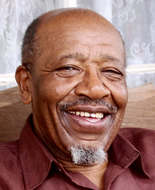My father died when I was a freshman in high school. Apart from the grief my family and I still bear from time to time, the things that he said have taken on a near-sacred aurora. I think a lot of families elevate things their loved ones say or did as a means of holding onto them; I suppose that’s altogether another reason to watch what we say and do.
As it was, my father had a lot of things to say in his 51 years. The other night I remembered something he said to me one day when I was grousing about something or someone. He said if I always expect the worst from someone, chances are good they will not disappoint me; in other words, a person has a tendency to live up to the expectations that we place on them. I thought about that the other night as I listened to Judge Jim Goodwin talk about the Sullivan County Felony Recovery Court, which is a court that works to “achieve a reduction in recidivism and substance abuse among nonviolent, substance abusing, adult felony offenders” (Goodwin).
I have to be straight up honest, I more often than not expect the worst or very little from the sort of people that Judge Goodwin’s Recovery Court seeks to help. Before you judge me, ask yourself if you haven’t done the same thing. If you’ve ever worked with addicts – you know that they can be the most manipulative, deceptive people on the planet. However, it is no secret that we have an opioid issue in this region. In other words, we have a lot of people here who go out of their way to get the drugs that they crave. In fact, I was told recently that an overwhelming majority of the people incarcerated in Sullivan County can be linked to drugs of one kind or another. It is safe to say that the opioid issue – drugs in general – are a direct contributor to overcrowding in our jails and there are those who suggest that we (that is Sullivan County taxpayers) need to invest around $50 million in order to build and or improve the jail.
As someone who prefers to see tax dollars go toward education and job creation, as someone who thinks that the answer to the drug problem is more than incarceration, I’m all ears when it comes to alternative ideas and suggestions. So, when Judge Goodwin began to talk about the Felony Recovery Court, I paid close attention.

The court itself works with people that most people have written off. They are repeat, non-violent, offenders who have a history of drug abuse. They are felons who are looking at doing a lot of time behind bars – which as you know costs the taxpayer. The Recovery Court is the last stop for these folks. The court – working with experts – hopes to increase the “likelihood for successful rehabilitation through early, continuous, and intense judicially supervised treatment, mandatory periodic drug testing, and the use of appropriate sanctions…” (Goodwin). The program started here in April 2015 (it’s being used in other places as well) and, so far, the results have been good. Judge Goodwin reports that “75% of Drug Court graduates remain arrest-free at least 2 years after leaving the program.”
Granted, the program isn’t perfect, and it takes time. People with serious addictions aren’t cured overnight. But the program does seem to reduce crime, helps our community, reduces the number of offenders being incarcerated, and it saves taxpayer money – which can be better spent in other places. But more importantly, it impacts the lives of people that are expected to fail – to blow it – to spend a great portion of their lives behind bars. Like my dad said, if we expect the worst out of people we will probably not be disappointed. I think Judge Goodwin is showing the folks of Sullivan County that maybe – just maybe – if we expect something good from people – they just might step up and meet our expectations.
*Remember – I’m running for Sullivan County Commissioner (District 2). Come out and vote in the Primary on May 1, 2018, and the General Election on August 2nd, 2018. If you aren’t a registered voter – then get registered!
I’m Mark A. Hutton and I approve this message. Paid for by Mark A. Hutton.




 “How we talk is how we think.” Of course, that idea wasn’t original with Postman. Jesus himself pointed this out when he said, “What comes out of the mouth proceeds from the heart.”
“How we talk is how we think.” Of course, that idea wasn’t original with Postman. Jesus himself pointed this out when he said, “What comes out of the mouth proceeds from the heart.”









